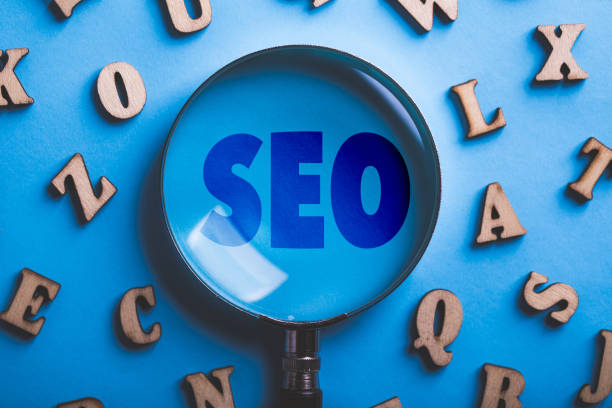What is Off-Page SEO and Why Does It Matter?

Off-Page SEO refers to all the activities that are done outside of your website with the goal of improving your website’s ranking in search engine results pages (SERPs).
These activities show search engines that your website is credible, valuable, and trustworthy.
The importance of #Off-Page SEO stems from the fact that search engines, like Google, view links and mentions from other websites to your website as a vote of confidence.
The higher the number and quality of these votes, the better your website’s ranking will be in search results.
Off-Page SEO includes techniques like link building, content marketing, social media activity, and online branding.
Without strong Off-Page SEO, even the best content can get lost in the sea of online information.
An effective Off-Page SEO strategy can increase organic traffic, boost brand credibility, and ultimately increase your sales and revenue.
For example, if a reputable news website links to your website, Google considers this link a strong signal of the credibility of your content.
This helps improve your website’s Off-Page SEO ranking.
Off-Page SEO efforts are so important that they cannot be ignored.
Therefore, investing in this area is a necessity for any business looking for online success.
Did you know that customers’ first impression of your company is your website? Multiply the credibility of your business with a powerful corporate website from Rasaweb!
✅ Custom and eye-catching design tailored to your brand
✅ Improved user experience and increased customer attraction
⚡ Get free advice!
Link Building – The Beating Heart of Off-Page SEO

Link building is one of the most important and vital parts of Off-Page SEO.
Simply put, link building means getting links from other websites to your website.
These links are known as backlinks and show search engines that other websites find your content valuable and relevant.
High-quality links from reputable and relevant websites can have a significant impact on improving your website’s ranking.
Conversely, spam and low-quality links can harm your website and even cause it to be penalized by Google.
There are different types of link building, including natural link building (earning links automatically due to content quality), manual link building (direct contact with other websites to get links), and indirect link building (creating engaging and shareable content).
Link building strategies should be implemented carefully and with attention to SEO principles.
For example, creating high-quality and engaging content, participating in relevant online forums, and connecting with bloggers and influencers can help you earn valuable links.
Also, paying attention to anchor text (the linked text) and its relevance to the content of the destination page is very important.
Proper link building helps improve your website’s Off-Page SEO.
Advanced Link Building Techniques in Off-Page SEO

In the competitive world of Off-Page SEO, using advanced link building techniques can make a big difference.
One of these techniques is link building through Pillar Content.
In this method, a comprehensive and complete piece of content is created on a specific topic, and then smaller and related content is linked to it.
This creates a strong internal link network and increases the credibility of the main content.
Another technique is using Broken Link Building.
In this method, broken links on other websites are identified, and the administrators of those websites are offered to replace the broken link with a link to your relevant content.
In addition, using the Skyscraper Technique can also be very effective.
In this method, popular content on a specific topic is identified, and then content that is better, more comprehensive, and more up-to-date is created.
Then, websites that have linked to the original content are notified that your new content is better and more complete and that they can change their link to it.
These techniques require research, planning, and precise execution, but their results can be very valuable.
Below you will see a table that summarizes some of these techniques.
| Technique | Description |
|---|---|
| Pillar Content | Creating comprehensive content and linking to related content |
| Broken Link Building | Finding broken links and offering to replace them with your link |
| Skyscraper Technique | Creating better and more comprehensive content than existing content and requesting a link |
Remember that the ultimate goal of link building is to create value for users and search engines.
Using unethical and spam techniques can harm your website and lower its ranking.
Focusing on the quality and relevance of content is the key to success in link building.
Content Marketing and Its Role in Off-Page SEO

Content Marketing is one of the main pillars of Off-Page SEO.
Producing valuable, engaging, and relevant content to your audience’s needs can help you attract natural links, increase organic traffic, and improve your website’s ranking.
High-quality content is automatically shared by other websites, social networks, and users, and this increases the visibility of your website.
There are different types of content that you can use for content marketing, including blog articles, infographics, videos, podcasts, e-books, and case studies.
The choice of content type should be made according to the needs and preferences of your target audience.
Also, your content must be SEO-optimized so that search engines can easily find and rank it.
Using relevant keywords, optimizing title and meta descriptions, and using high-quality images with appropriate alternative text are among the actions you can take to SEO optimize your content.
By producing and publishing valuable content, you not only help improve your website’s Off-Page SEO, but you are also recognized as a credible source in your industry and gain the trust of your audience.
Is your company website as professional and reliable as it should be? With a specialized corporate website design by Rasaweb, create an online presence that represents your credibility and attracts more customers.
✅ Building a powerful and professional image of your brand
✅ Converting visitors into real customers
⚡ Get free advice now!
Social Networks and Their Impact on Off-Page SEO

Social networks play an important role in Off-Page SEO.
Although social networks do not directly affect website ranking in Google, they can indirectly increase traffic, brand visibility, and earn natural links.
Sharing your website content on social networks can increase visits to your website, which can help improve your website’s ranking.
In addition, social networks can help you connect with your audience, understand their needs, and get feedback.
By creating a strong presence on social networks, you can introduce your brand as a credible source in your industry and gain the trust of your audience.
Also, social networks can help you identify influencers and influential people in your industry, and by collaborating with them, you can increase your reach to new audiences.
For example, publishing an attractive infographic on Instagram can increase visits to your website.
Remember that activity on social networks should be done continuously and by providing valuable content so that you can achieve desirable results.
Online Branding and Off-Page SEO

Online Branding plays an important role in Off-Page SEO.
A strong and well-known brand can help you attract natural links, increase organic traffic, and improve your website’s ranking.
When people search for your brand name on the internet and encounter high-quality and relevant content, they are more likely to link to your website or share your content.
To create a strong and well-known brand, you should focus on creating a cohesive visual identity, providing valuable content, and establishing relationships with your audience.
Your logo, colors, fonts, and writing style should be the same across all your online channels.
Also, you should constantly provide high-quality content relevant to your audience’s needs.
Answering your audience’s questions and comments, participating in online discussions, and creating personal relationships with them can help you create a strong and lasting relationship with your audience.
In fact, strong Off-Page SEO requires strong branding.
For example, a software company can introduce its brand as a credible source in this field and gain the trust of its audience by providing free and high-quality training on using its software.
Key Metrics of Off-Page SEO and How to Measure Them

To evaluate the success of your Off-Page SEO strategy, you need to identify and measure key metrics.
Some of the most important Off-Page SEO metrics include the number of backlinks, the quality of backlinks, organic traffic, keyword ranking, Bounce Rate, and Time on Page.
The number of backlinks indicates how many other websites have linked to your website.
The quality of backlinks indicates whether the backlinks have been received from reputable and relevant websites.
Organic traffic indicates how much traffic has entered your website through search engines.
Keyword ranking indicates what rank your website has in search results for the keywords you want.
Bounce rate indicates what percentage of visitors to your website have left the website after viewing a page.
Time on page indicates how long visitors spend on your website.
By measuring and analyzing these metrics, you can identify the strengths and weaknesses of your Off-Page SEO strategy and take the necessary steps to improve it.
Below you will see a table that summarizes these metrics.
| Metric | Description |
|---|---|
| Number of Backlinks | The number of websites that have linked to your website |
| Quality of Backlinks | Credibility and relevance of linking websites |
| Organic Traffic | Amount of traffic from search engines |
| Keyword Ranking | Your website’s ranking for target keywords |
| Bounce Rate | The percentage of visitors who leave the website after viewing a page |
| Time on Page | The amount of time visitors spend on your website |
Using web analytics tools such as Google Analytics and Search Console can help you measure these metrics.
Using these tools, you can closely monitor your website traffic and evaluate the performance of your Off-Page SEO strategy.
Common Mistakes in Off-Page SEO and How to Avoid Them

In Off-Page SEO, avoiding common mistakes can be as important as taking the right actions.
One of the most common mistakes is buying backlinks from low-quality and spam websites.
This not only does not help improve your website’s ranking, but it can also cause it to be penalized by Google.
Another mistake is using reciprocal links too much.
Although exchanging links with relevant and reputable websites can be useful, excessive use of this method can be considered an unnatural link building tactic.
Ignoring anchor text is also a common mistake.
The anchor text should be relevant to the content of the destination page, and overuse of exact match keywords should be avoided.
In addition, ignoring website speed and optimizing it for mobile can also harm your Off-Page SEO.
Google prioritizes websites that are fast and optimized for mobile.
Also, failure to engage with the audience on social networks and failure to respond to their questions and comments can damage your brand’s reputation.
By avoiding these mistakes, you can avoid wasting your resources and have a more effective Off-Page SEO strategy.
Does your current website convert visitors into customers or scare them away? Solve this problem forever with a professional corporate website design by Rasaweb!
✅ Creating a strong brand image and credibility
✅ Attracting target customers and increasing sales
⚡ Get free advice now!
Essential Tools for Off-Page SEO

To implement a successful Off-Page SEO strategy, the use of appropriate tools is essential.
Various tools are available that can help you with keyword research, competitor analysis, backlink monitoring, and website performance evaluation.
Some of the most popular Off-Page SEO tools include Ahrefs, SEMrush, Moz, Google Search Console, and Google Analytics.
Ahrefs and SEMrush are comprehensive tools that can help you with keyword research, competitor analysis, backlink monitoring, and website performance evaluation.
Moz is also a powerful tool that offers similar features.
Google Search Console is a free tool provided by Google that allows you to monitor your website’s performance in search results.
Google Analytics is also a free tool that allows you to analyze your website traffic and get useful information about user behavior.
By using these tools, you can improve your Off-Page SEO strategy and achieve better results.
Remember that choosing the right tool depends on your needs and budget.
Using a combination of free and paid tools can help you achieve the best results.
The Future of Off-Page SEO and Emerging Trends

The world of Off-Page SEO is constantly changing and evolving, and to succeed in this field, you need to be familiar with new trends and adjust your strategies accordingly.
One of the most important emerging trends is the increasing importance of User Experience.
Google prioritizes websites that offer a good user experience.
Website speed, responsive design, and easy navigation are among the factors that affect user experience.
Another trend is the increasing importance of video content.
Videos have become increasingly popular and can help you attract audiences, increase engagement, and earn natural links.
Also, Artificial Intelligence plays an increasing role in Off-Page SEO.
AI-based tools can help you with keyword research, content generation, and data analysis.
Given these new trends, you need to keep your Off-Page SEO strategies up to date and use new technologies to improve your website’s performance.
Frequently Asked Questions
| Row | Question | Answer |
|---|---|---|
| 1 | What is Off-Page SEO? | Off-Page SEO refers to a set of actions taken outside of your website to improve its ranking in search engines. These actions include building backlinks, being present on social networks, branding, and so on. |
| 2 | Why is Off-Page SEO so important? | Off-Page SEO shows search engines that your website is credible, popular, and trustworthy. High-quality backlinks from reputable sites are a strong signal for better rankings and help increase the credibility of your domain. |
| 3 | What are the most important components of Off-Page SEO? | The most important components of Off-Page SEO include: Link Building, Content Marketing, Social Media Marketing, Influencer Marketing, and Online Reputation Management. |
| 4 | What is a backlink and why is it important for Off-Page SEO? | A backlink is a link that points from another website to your website. These links act as “votes of confidence” from Google and indicate the credibility of your content. The greater the number and quality of backlinks, the better your site will rank. |
| 5 | What types of backlinks are there in terms of their impact on SEO? | There are two main types of backlinks, including DoFollow and NoFollow. DoFollow backlinks transfer authority (Link Juice) and directly affect ranking. NoFollows do not transfer authority but can still generate traffic and help make the link profile appear natural. (Also UGC and Sponsored) |
| 6 | How can you create high-quality backlinks for your site? | To build high-quality backlinks, you can use methods such as: producing great and shareable content, Guest Posting on relevant and reputable sites, Broken Link Building, Digital PR, and analyzing competitor backlinks. |
| 7 | What are Toxic Backlinks and how do they affect a site? | Toxic or spam backlinks are links that point to your site from low-quality, spam, or irrelevant websites. These backlinks can harm your site’s rankings and even lead to penalties by Google’s algorithms. |
| 8 | What is the role of social networks in Off-Page SEO? | Although social signals (likes, shares, etc.) are not directly a ranking factor, they help with Off-Page SEO. They increase content visibility, increase direct traffic to the site, and ultimately increase the chance of earning natural backlinks and improving brand awareness. |
| 9 | What is the importance of diversity in the backlink profile? | Diversity in the backlink profile means that your links come from different sources (blogs, forums, news sites, directories), with diverse anchor texts, and with a combination of DoFollow and NoFollow links. This diversity shows Google that your link building is natural and organic. |
| 10 | What are common mistakes in Off-Page SEO to avoid? | Common mistakes include: buying backlinks in large volumes from low-quality sources, excessive link building with target keywords (Over-optimization), ignoring quality in favor of quantity in backlink building, lack of diversity in the link profile, and ignoring harmful backlinks and failing to Disavow them. |
and other services of Rasa Web advertising agency in the field of advertising
Smart custom software: A professional solution for attracting customers with a focus on a search engine optimized content strategy.
Smart UI/UX: A combination of creativity and technology for digital branding through precise audience targeting.
Smart sales automation: Transform online growth with the help of proprietary programming.
Smart marketplace: Transform click-through rates with the help of proprietary programming.
Smart marketplace: Improve search engine optimization rankings with the help of Google Ads management.
And more than hundreds of other services in the field of Internet advertising, advertising consulting and organizational solutions
Internet advertising | Advertising strategy | Advertorials
Resources
The Complete Guide to Off-Page SEO in Search Engine Journal
,Off-Page SEO: What You Need to Know (Ahrefs’ Guide)
,Off-Page Optimization: The Moz Guide
,What is Off-Page SEO? A Step-by-Step Guide
? To be seen and grow your business in the digital world, Rasaweb Afarin Digital Marketing Agency with expertise in Corporate Website Design, SEO and content marketing, is always with you to pave the way for your success with creative and result-oriented solutions. Trust us and transform the future of your business.
📍 Tehran, Mirdamad Street, next to the Central Bank, South Kazerun Alley, Ramin Alley No. 6
“`


